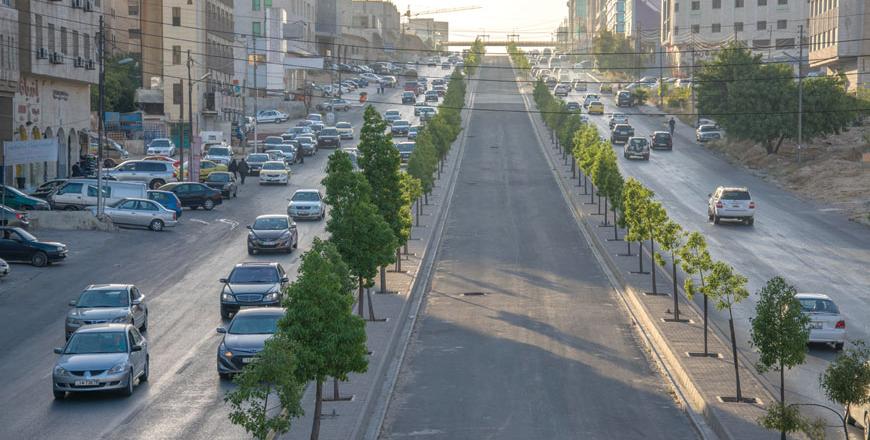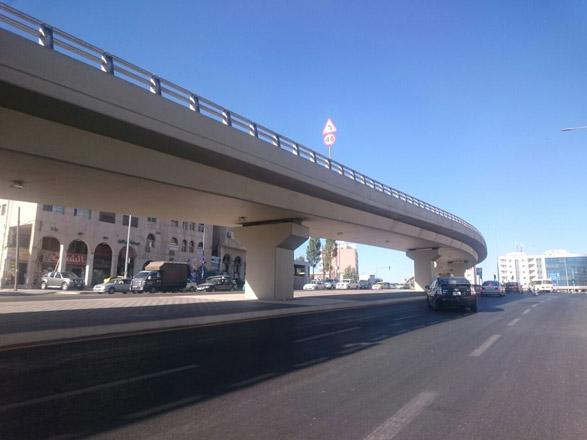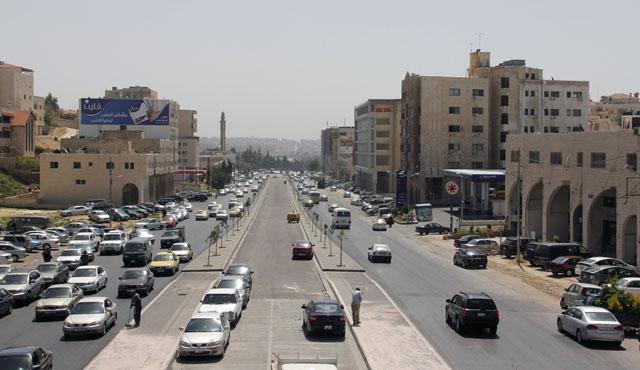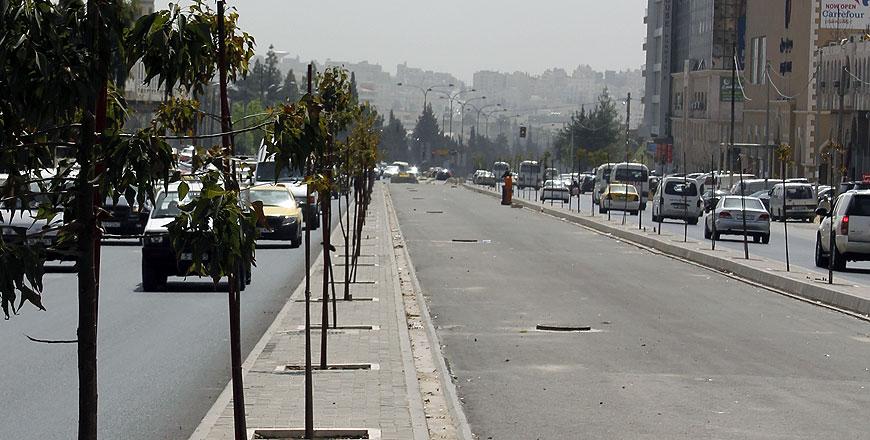You are here
GAM signs deal with French agency to fund rapid bus project
By JT - Jun 01,2015 - Last updated at Jun 01,2015

The bus track of the BRT project as seen on Monday on Queen Rania Street in Amman (Photo by Amjad Ghsoun)
AMMAN — The Greater Amman Municipality (GAM) and the French Agency for Development (AFD) signed on Monday an agreement to fund the Bus Rapid Transit (BRT) project with $152 million, the Jordan News Agency, Petra, reported.
Amman Mayor Aqel Biltaji, Regional Director of the AFD in the Middle East and North Africa Marie Hélène Loison and French Ambassador to Jordan Caroline Dumas signed the agreement, which stipulated that GAM will handle infrastructure works, including crossroads, traffic solutions and the structures of the bus stops the bus lane will pass through.
Meanwhile, the private sector will be responsible for supplying the buses, IT management, activation and maintenance, according to the agreement.
Loison said she was glad to sign the agreement which shows the commitment of the AFD, the Jordanian government and GAM to providing a convenient and secure transportation system in the capital.
The construction of the project will take 30 months, covering a route that links downtown to Sweileh on the city’s northern edge, and from downtown through Princess Basma Street (Ras Al Ain to Fifth Circle) in the second phase. The two routes will be linked through King Abdullah Street (also known as Medical City Street), which links between west Amman and Sweileh.
The multimillion-dinar project entails operating premium, high-capacity buses that can carry more than 120 passengers and will run on a three-minute frequency during peak hours on segregated lanes along Amman’s busiest corridors.
Under the deal, GAM will repay the soft loan between 2019 and 2033 with a three-year grace period, with an interest rate measured based on the Libor rate plus 1 per cent, Petra said, while Societe Generale Bank will arrange banking transactions.
The total cost of the project is $166 million, $14 million of which was spent when the BRT project started in 2010, according to Petra. Work on the project stopped in the summer of 2011 amid concerns over its feasibility and funding, and the Cabinet officially suspended it and halted all related tenders.
In 2013, the government decided to go ahead with the project, as part of a plan that seeks to provide transport solutions and ease traffic congestion in the capital.
Related Articles
AMMAN — The Greater Amman Municipality (GAM) on Saturday inaugurated the third phase of the Bus Rapid Transit (BRT) project at the highway p
The Greater Amman Municipality (GAM) has awarded a tender to a local construction company to start working on the second phase of the Bus Rapid Transit (BRT) project, a source at the municipality told The Jordan Times on Thursday.
AMMAN — After resuming the municipality’s work on the Bus Rapid Transit (BRT) in 2013, the Greater Amman Municipality (GAM) officials on Sat














